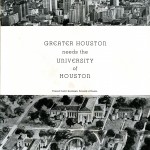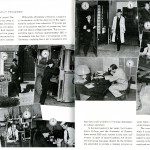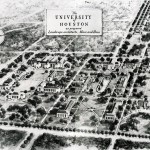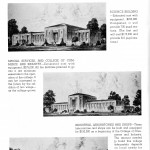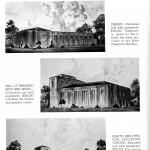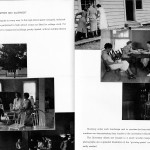
This week, the nation celebrates the life of noted civil rights activist Dr. Martin Luther King, Jr. Dr. King led non-violent protests 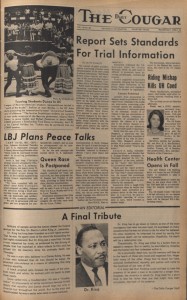 against segregation throughout the country, including the Montgomery Bus Boycott, the March on Washington, and the Selma to Montgomery Marches, among numerous others, over a span of fifteen years. These actions helped bring about the end of legal segregation with the passing of the 24th Amendment and the Civil Rights Act of 1964.
against segregation throughout the country, including the Montgomery Bus Boycott, the March on Washington, and the Selma to Montgomery Marches, among numerous others, over a span of fifteen years. These actions helped bring about the end of legal segregation with the passing of the 24th Amendment and the Civil Rights Act of 1964.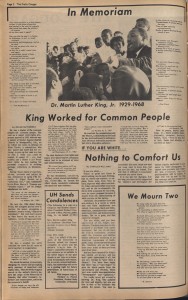
On the evening April 4th, 1968, the world was shocked by the assassination of Dr. King in Memphis, Tennessee. The April 10th Daily Cougar captured the thoughts and feelings of students—both black and white—on the University of Houston’s campus, which had been integrated quietly in the fall of 1961. Materials related to the integration of UH can be found in the President’s Office Records while Cougars of Any Color discusses the integration of the UH Athletics Department. Additionally, the Thomas R. Cole Desegregation Papers are a rich resource on the Civil Rights Movement in Houston.
The University continues to celebrate Dr. King’s legacy with a MLK Day Celebration and a UH Day of Service.

Special Collections was well represented at the Society of Southwest Archivists’ annual meeting last week in Austin. Ryder Kouba, the University Archives Fellow, presented “Developing Policies and Procedures for Incoming Digital Materials at the University of Houston,” a case study on the steps taken to accession digital materials, which was attended and well received by SAA President Jackie Dooley. Carey C. Shuart Women’s Archivist Vince Lee presented “And Justice for All: Women’s Liberation and the Feminist Movement during the 1970s and 1980s,” which detailed important collections in the Shuart Women’s Archives in a session chaired by Mary Manning, the University Archivist. Vince also chaired the “Architecture in the Archives” session. Alison Clemens, the Houston and Texas Archives Fellow, presented “From Flows to Finding Aids: Processing the Houston Hip Hop Collections at the University of Houston Libraries” which discussed the challenges she faced processing the DJ Screw Papers and other Houston Hip Hop Collections. All staff members had a wonderful time in the state capital and enjoyed sharing the work of UH Special Collections with the archival community.
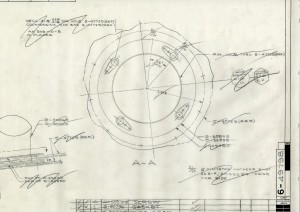
A working drawing of the pneumatic system components of a B52-A Stratofortress bomber from early in Dr. Lienhard’s career
2013 marks the 25th anniversary of The Engines of Our Ingenuity, a nationally-syndicated radio program that started at UH. Professor John Lienhard created, wrote, and hosted 1856 episodes of the show, including episode 1, which was broadcast by KUHF-FM Houston on January 4, 1988.
The show was soon airing nationally and resulted in Dr. Lienhard giving talks around the country as well as publishing a book. The Professor John Lienhard Papers in Special Collections document both the history of Engines through audio recordings and transcripts, as well as Dr. Lienhard’s professional career through correspondence, personal papers, and drafts of published works.
Anyone interested in The Engines of Our Ingenuity or Dr. Lienhard should take a look at Special Collections’ slideshow or stop by the Reading Room in M. D. Anderson Library.
Crowned by the groundbreaking of the new football stadium last Friday, the rapidly changing University of Houston campus is ushering in a new era on Cullen Boulevard. Improved academic facilities, an improved University Center, and a dozen other projects around campus—crowned with a new state-of-the-art football stadium—play a key role in the development of UH into a Tier One institution. The development of the UH campus has been made possible by President Khator’s outreach to the state legislature, Houstonians, and the city of Houston. 76 years ago, a young University of Houston made a similar appeal to the city and its residents to create a first-class campus on previously undeveloped land southeast of Houston.
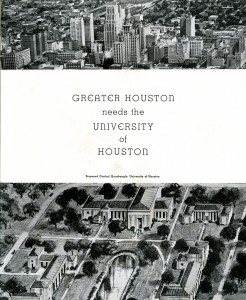 The document “Greater Houston Needs the University of Houston” is a fascinating look at the three year-old university, its ambition, and how it presented itself to Houstonians. Founded in 1927 by the Houston Independent School District as a junior college, the institution gained university status in 1934. Three years later, the campaign for a new campus began under the leadership of President Edwin E. Oberholtzer. While the language and specifics of the university have changed over 76 years (particularly in regards to student housing), the core message that the university plays an important role in the city educationally, economically, and culturally remains largely the same.
The document “Greater Houston Needs the University of Houston” is a fascinating look at the three year-old university, its ambition, and how it presented itself to Houstonians. Founded in 1927 by the Houston Independent School District as a junior college, the institution gained university status in 1934. Three years later, the campaign for a new campus began under the leadership of President Edwin E. Oberholtzer. While the language and specifics of the university have changed over 76 years (particularly in regards to student housing), the core message that the university plays an important role in the city educationally, economically, and culturally remains largely the same.
Below are selected pages from the booklet which may be viewed in the Special Collections reading room in its entirety. Additionally, numerous images of the early UH campus and buildings are available online in the Digital Library.
- Greater Houston needs the University of Houston
- Sadly, it appears the typical student did not have time for socializing or friendship of any kind.
- The University of Houston as proposed by the landscape architects Hare & Hare.
- Additional Buildings included in the $1,000,000 Program
- Additional buildings planned for the future
- Chemistry and wooden buildings: a flammable combination
The University Archives recently received materials from the Immanuel and Helen Olshan Texas Music Festival, an intensive classical music summer program held at the Moores School of Music. Founded in 1990, the Festival brings college-aged and young professional musicians from around the country to the University of Houston where they prepare for careers in music. The Festival holds around 25 performances, including a weekly concert by a 90-piece orchestra, in addition to workshops and classes. As an important part of the Moores School of Music—as well as the classical music scene in Houston—the University Archives is thrilled to preserve the history of the Texas Music Festival.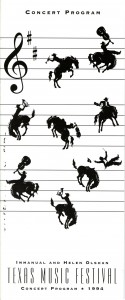
Materials given to the University Archives document the growth of the Texas Music Festival from its founding to the present day, and include publicity materials, such as posters, programs, and calendars as well as newspaper and magazine articles covering the Festival. On a more personal level, the collection includes letters from scholarship recipients to Helen Olshan thanking her for her support. Additionally, recordings of performances from 2000 to 2011 were included in the donation.
The CD recordings of Festival performances provide a challenge for the University Archives. In order to make the recordings accessible to the public, it is necessary to image the discs as well as implement access policies and procedures. The non-digital materials are currently viewable in the Special Collections Reading Room. In addition to the Texas Music Festival Collection, Special Collections holds significant musical material, including medieval sheet music, the David Ashley White Papers, and Houston Hip Hop.
